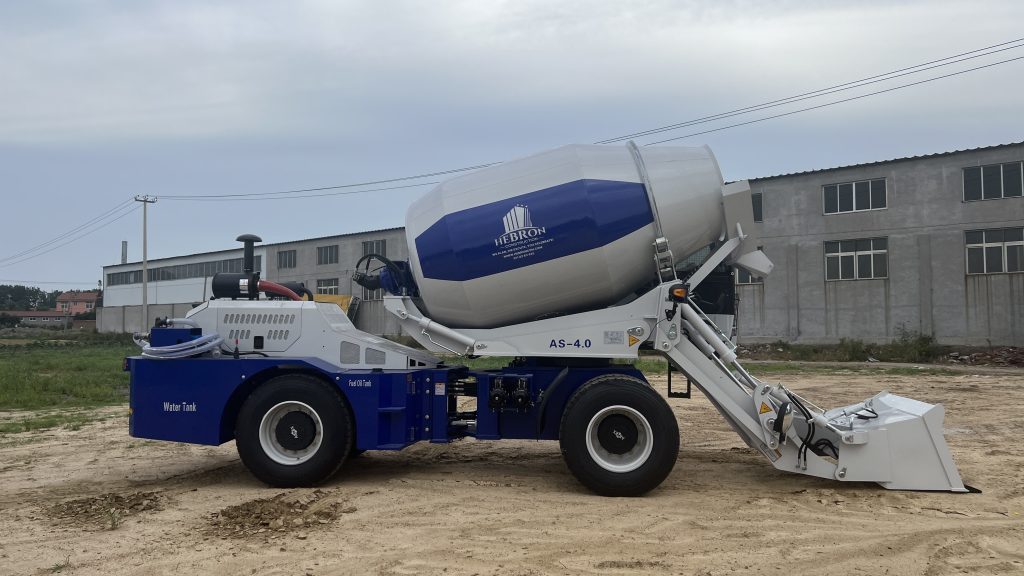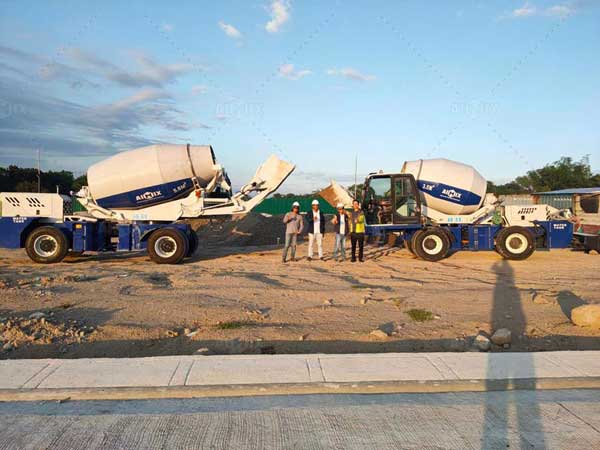Remote or challenging terrains pose unique logistical challenges for construction projects, especially when it comes to concrete mixing. However, advancements in technology have introduced innovative solutions like self-loading concrete mixers, which offer increased mobility and versatility. In this article, we’ll explore the feasibility of utilizing self-loading concrete mixers in such environments.
The Advantages of Self-Loading Concrete Mixers
Self-loading concrete mixers have gained popularity in the construction industry due to their ability to significantly streamline the concrete mixing process. Here are some key advantages:
1. Mobility and Maneuverability
Traditional concrete mixers rely on stationary batching plants, making them less suitable for remote or challenging terrains. In contrast, self loading truck mixer features a built-in loading bucket and mixing drum, allowing them to be easily transported to and operated in remote locations. Their compact design and 4-wheel drive capability enable them to navigate rough terrain with ease, making them ideal for construction sites located in remote or inaccessible areas.

2. Time and Labor Savings
Self-loading concrete mixers offer significant time and labor savings compared to traditional mixing methods. With traditional mixers, workers must manually load materials into the mixer, leading to increased labor costs and potential delays. In contrast, self loading concrete mixer for sale south africa features an integrated loading system that automates the loading process, allowing one operator to handle both loading and mixing tasks efficiently. This not only reduces labor requirements but also speeds up the overall construction process, enabling projects to be completed more quickly and cost-effectively.
3. Versatility and Customization
Another advantage of self-loading concrete mixers is their versatility and ability to customize concrete mixes on-site. Traditional batching plants often produce large quantities of standard concrete mixes, which may not be suitable for all construction projects. In contrast, self-loading mixers allow operators to adjust the mix proportions and additives according to specific project requirements, ensuring optimal performance and quality for each batch of concrete produced. This versatility makes self-loading mixers well-suited for a wide range of construction applications, including road construction, infrastructure projects, and residential developments.

Feasibility in Remote or Challenging Terrain
While self-loading concrete mixers offer numerous advantages, their feasibility in remote or challenging terrain depends on various factors:
1. Terrain Accessibility
The primary consideration when assessing the feasibility of using self-loading concrete mixers in remote terrain is terrain accessibility. While these mixers are designed to navigate rough terrain, excessively steep slopes or rugged terrain may pose challenges. Conducting a thorough site assessment to evaluate terrain conditions and access routes is essential to determine whether self-loading mixers can be effectively deployed.
2. Equipment Durability
Operating in remote or challenging terrain exposes equipment to harsh environmental conditions, including extreme temperatures, moisture, and rough terrain. Ensuring the durability and reliability of self loading concrete mixer in the Philippines in such environments is critical to prevent equipment breakdowns and costly repairs. Investing in high-quality, rugged equipment designed for off-road use can help mitigate these risks and ensure continuous operation in challenging conditions.
3. Maintenance and Support
Remote construction sites often lack access to specialized maintenance services and support infrastructure, making equipment maintenance and repair challenging. Prioritizing regular maintenance and servicing of self-loading concrete mixers is essential to prevent equipment failure and ensure reliable operation. Additionally, establishing contingency plans and access to spare parts and technical support can help minimize downtime and maintain productivity in remote locations. If you need help for maintenance, contact AIMIX Group.
In conclusion, self-loading concrete mixers offer significant advantages in terms of mobility, efficiency, and versatility, making them well-suited for remote or challenging terrain. However, their feasibility depends on factors such as terrain accessibility, equipment durability, and maintenance support. By carefully evaluating these factors and implementing appropriate measures, construction companies can effectively leverage self-loading mixers to streamline operations and overcome logistical challenges in remote environments.